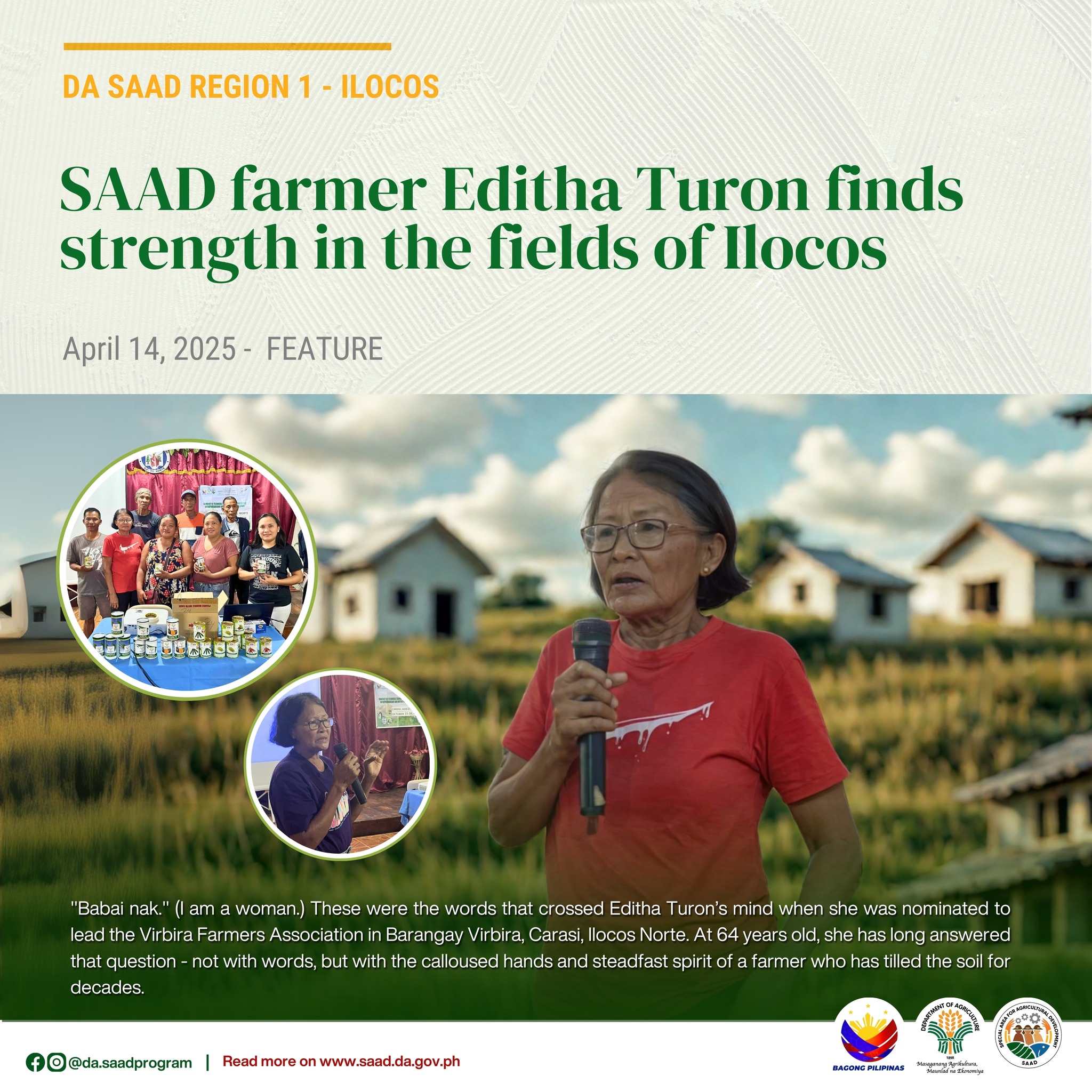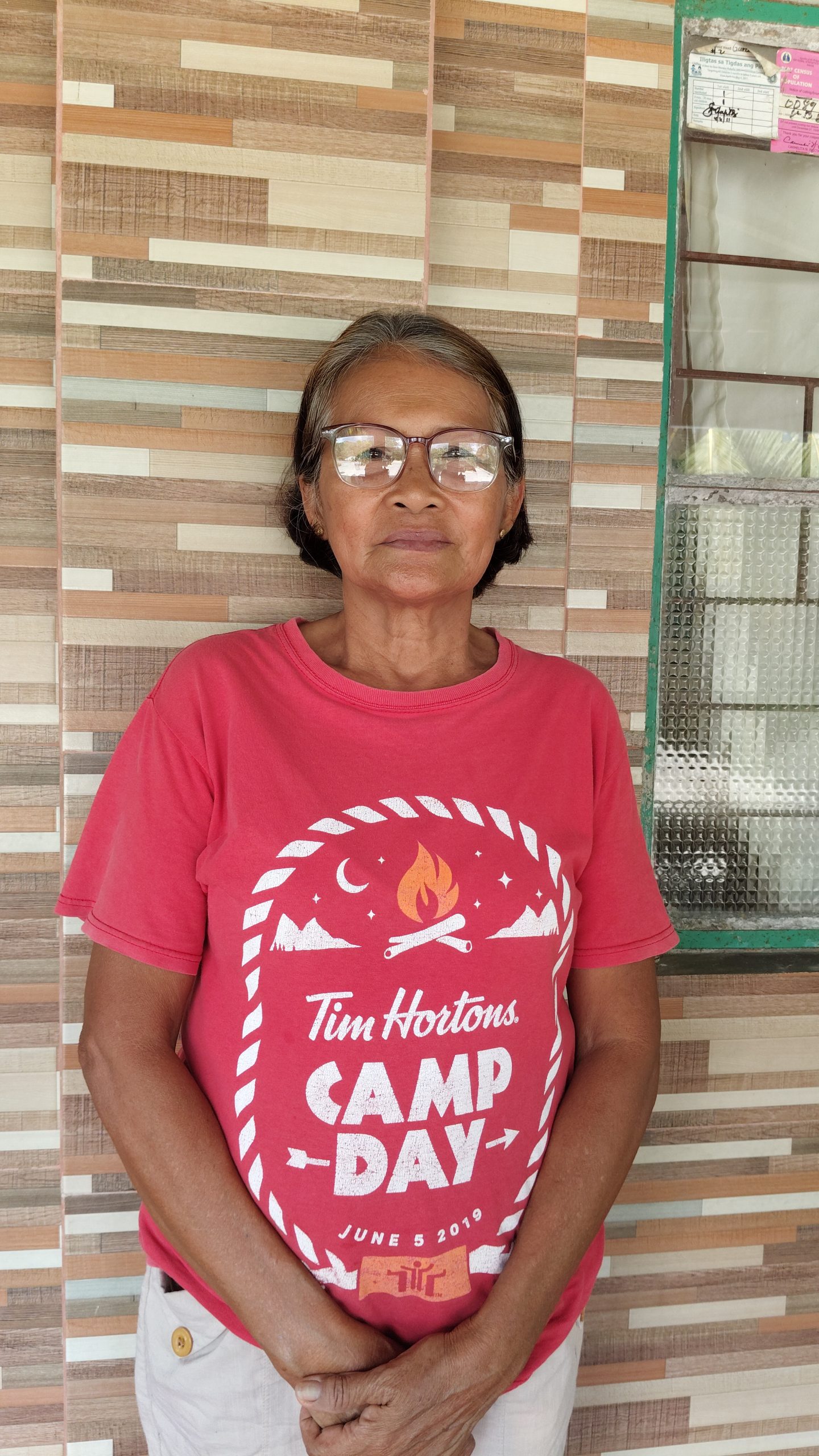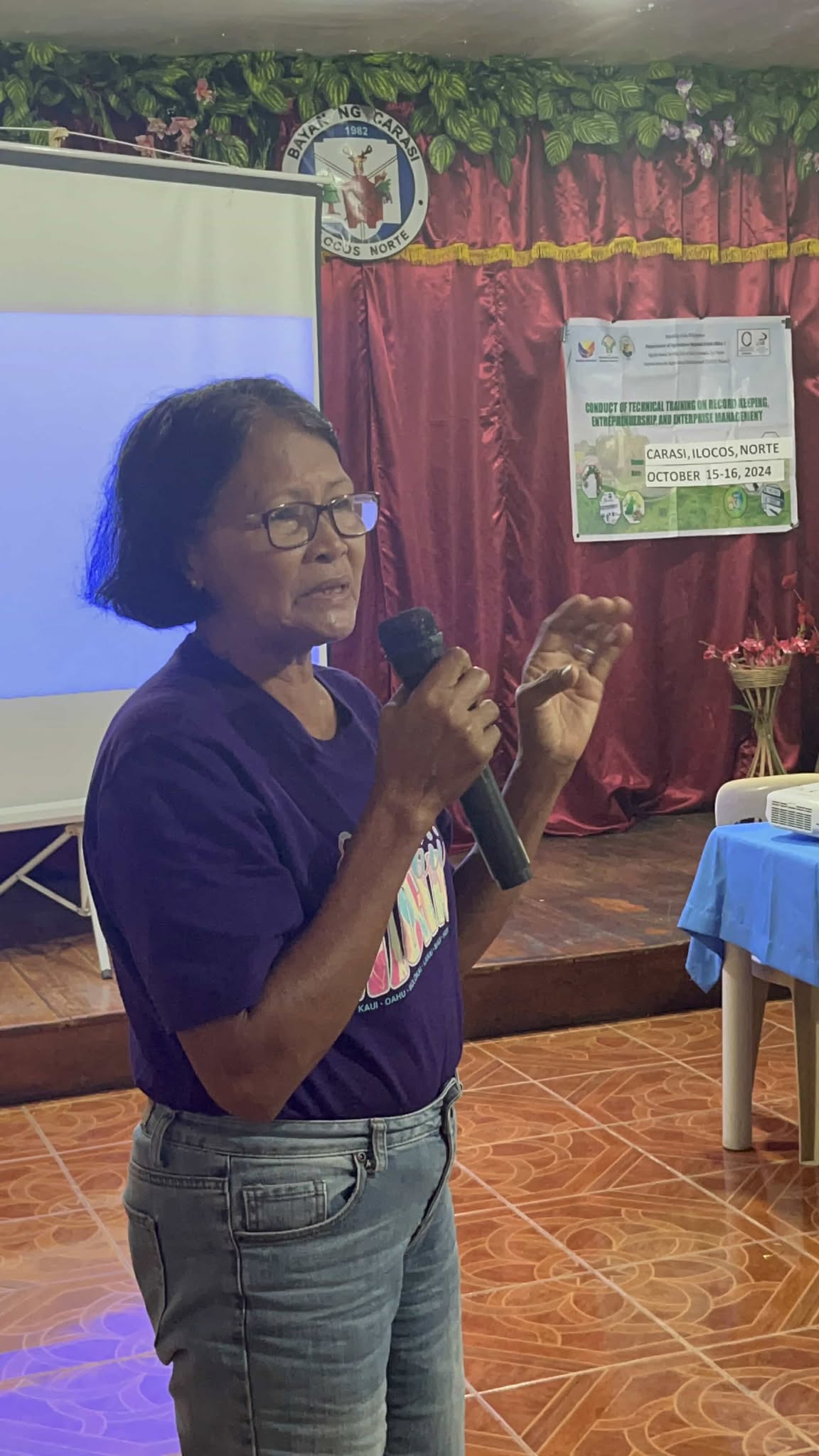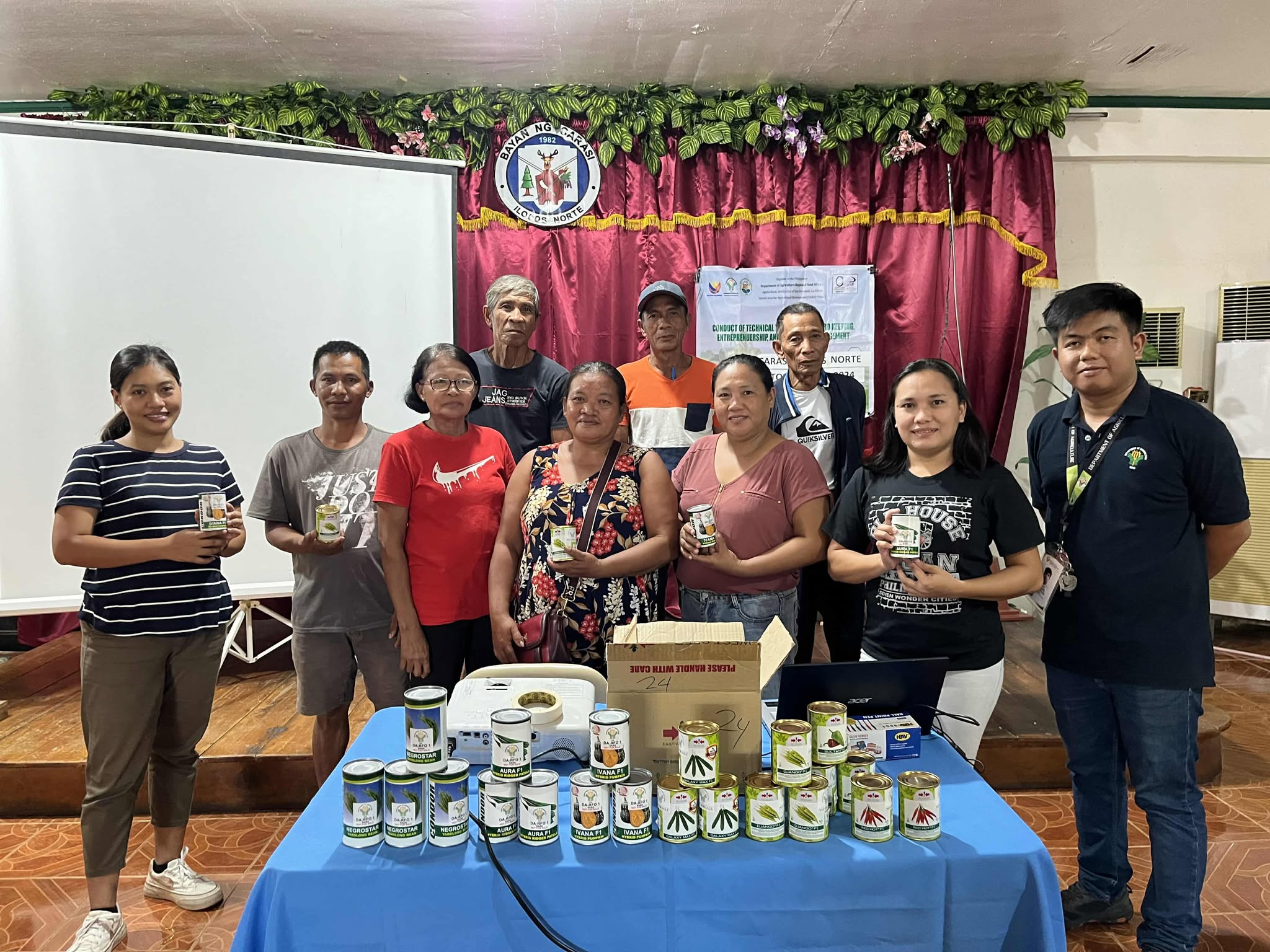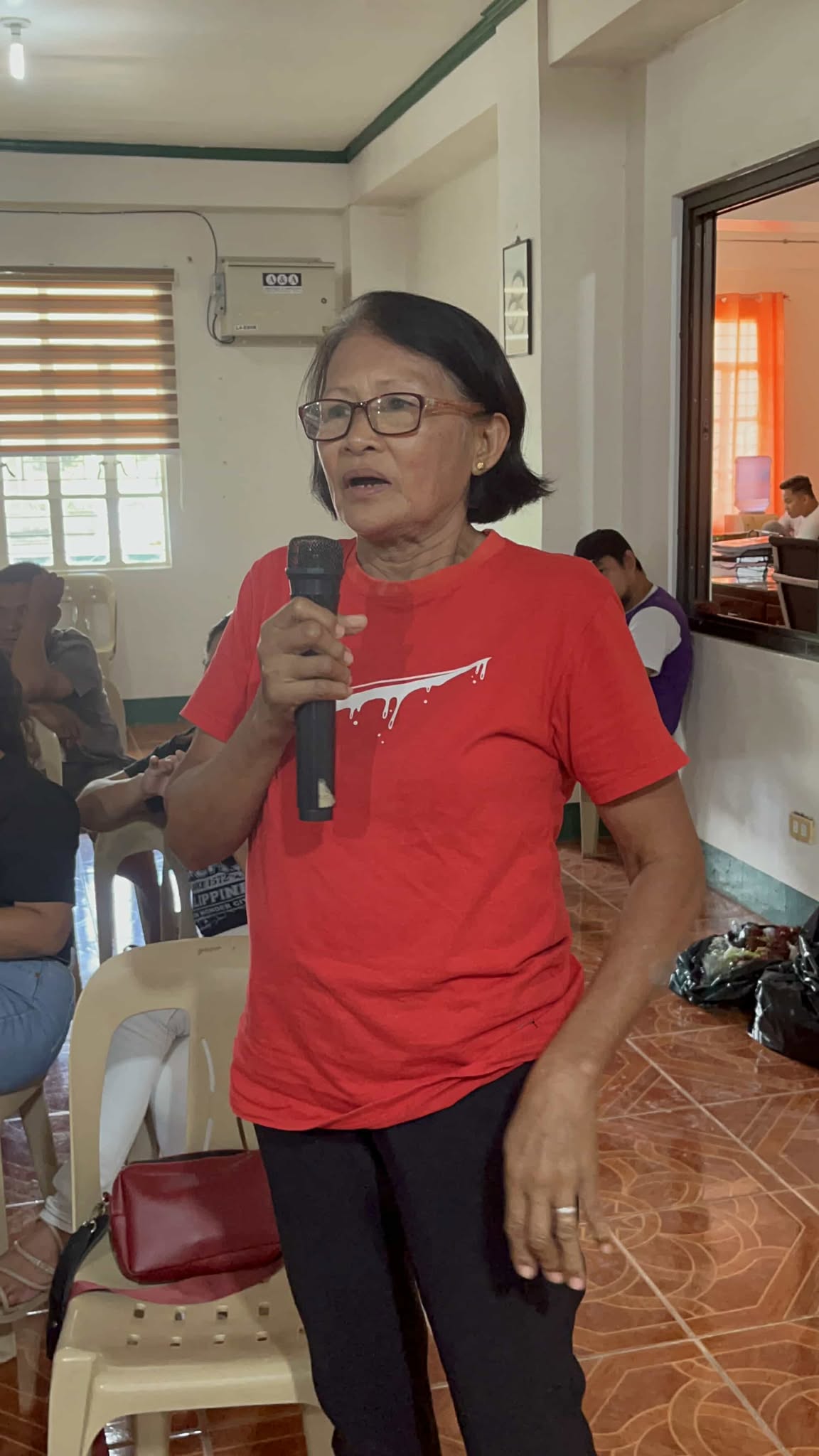“Babai nak.” (I am a woman.) These were the words that crossed Editha Turon’s mind when she was nominated to lead the Virbira Farmers Association in Barangay Virbira, Carasi, Ilocos Norte. At 64 years old, she has long answered that question – not with words, but with the calloused hands and steadfast spirit of a farmer who has tilled the soil for decades.
She learned to farm by watching her relatives. Every time they went to the fields, she followed, eager to learn. It wasn’t an easy journey, but with patience and determination, she mastered the rhythms of the land. Farming became her way of life, but it wasn’t the only path she walked.
For over 12 years, she worked as a daycare teacher, despite only being a high school graduate. At first, she doubted herself.
“Idi adda three months, four months, inggana a bumaybayag nakun, ijay ko metla a na-enjoy,” she recalled.
(At first, after three or four months, I struggled, but eventually, I started to enjoy it.)
She found joy in teaching children how to read, count, and prepare for kindergarten. Their success became hers, a reminder that knowledge, like crops, flourishes with care.
Her commitment to service extended beyond the classroom. She became a barangay kagawad, an acting secretary, a treasurer, a Barangay Nutrition Scholar (BNS), and a Barangay Health Worker (BHW). Leadership found her again when she was nominated as the president of the Virbira Farmers Association.
Editha hesitated, thinking, “Babai nak.” But the decision was made, and she embraced the role, proving that leadership has no gender.
Leading the association was tough. With no funds, they had to pay for registration fees themselves. “Napan kami nagbayad iti 5,000 tapnu ayat mi la a marugyan dagiti papeles mi,” she says. (We paid 5,000 pesos just so we could start processing our documents.)
But perseverance paid off. Under her leadership, they secured a four-wheel tractor from the Provincial Government of Ilocos Norte (PGIN), along with sprayers, grass cutters, and water pumps.
The Department of Agriculture – Special Area for Agricultural Development (DA-SAAD) Program Phase 2 became a lifeline, providing cattle, farming supplies, and resources that eased their struggles.
For Editha, farming is more than a livelihood. It sent her children to school, clothed them, and put food on their table.
“Dakkel naitulong ti panagtalon ti biag mi,” she said with pride. (Farming has helped sustain our lives.)
The fields of Virbira may be challenging, but they have yielded more than just crops—they have built futures.
Challenges remain. Irrigation is scarce, and pests threaten their harvests. But Editha remains hopeful. “Adu ti challenges mi, naang-angat met iti panagtalon mi itan gapu dagiti tulong kanyami,” (We have faced many challenges, but our farming has improved thanks to the help we received) she says.
With support from programs like SAAD, she dreams of a time when farmers no longer struggle for water, when their harvests are abundant, and when farming is valued as a noble profession. ###
